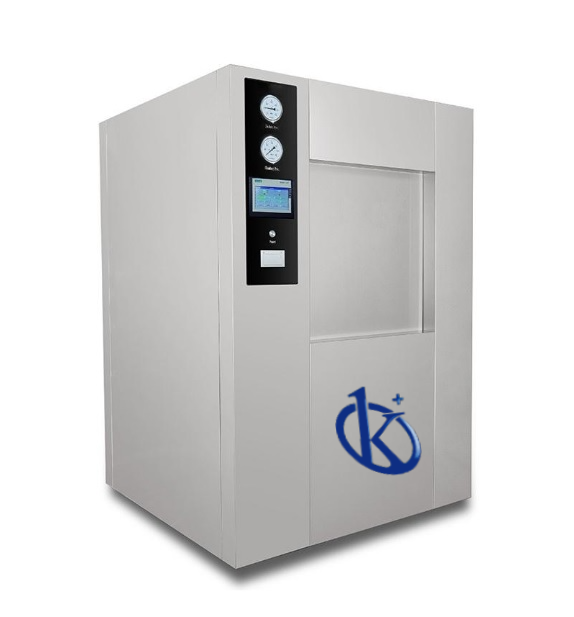If you’re seeking a powerful and effective solution for sterilizing medical equipment in your clinic, then autoclaves will be a transformative addition. This high-quality laboratory equipment is used for effectively and efficiently sterilizing medical, scientific, and laboratory equipment, due to its high-pressure and temperature mechanism.
The invention of the autoclave has revolutionized the field of medicine. The need for sterilization of medical instruments has never been more critical, and autoclaves have proven to be an extremely efficient and effective solution for this essential purpose. Without this sterilization equipment, the chances of the spread of infections and diseases would be exponentially higher.
Features of Autoclaves
Autoclaves stand out for their high power and precise sterilization features. They are capable of achieving extremely high pressure and temperature, which enables the elimination of challenging pathogenic microorganisms. Additionally, autoclaves are easy to use and maintain, making them a cost-effective and efficient addition to any clinic.
Why Autoclaves Cost What They Do?
You might be wondering why autoclaves carry the cost they do. The reason is that they are high-quality equipment, designed to offer safe and efficient sterilization. Their robust, durable construction, and advanced sterilization technology make their price quite reasonable.
Comparing Autoclaves with Similar Products
There are several products in the market that aspire to perform a similar task to autoclaves, but few, if any, can match the effectiveness and reliability of this sterilization equipment. Compared to other brands, Kalstein’s autoclaves offer superior quality in terms of durability, ease of use, and sterilization accuracy.
Pros and Cons of Autoclaves
While autoclaves offer numerous advantages, they also have some disadvantages worth mentioning. However, it’s essential to remember that the advantages far outweigh any potential downside. Here’s a breakdown of some pros and cons.
|
Pros |
Cons |
|
Stability to sterilize under high pressure and temperature |
Autoclaves can involve a significant capital investment |
|
Durability and extended lifespan |
Requires regular calibration cycle |
|
Energy efficiency |
They cannot sterilize heat-sensitive liquids |
|
Easy and safe loading of equipment |
Large-scale autoclaves may take up a lot of space |
|
Eliminates the need for dangerous chemicals |
Need for trained staff for operation |
|
Ease of use and maintenance |
Requires a reliable power source |
|
Can sterilize a wide range of materials |
|
|
Sturdy construction for long-term performance |
Benefits of these Autoclaves
Autoclaves provide a multitude of benefits, particularly in terms of efficiency and the quality of sterilization. Their high-pressure and temperature mechanism ensures that even the most resilient microorganisms are eliminated. This level of safety has a significant impact on the clinical environment, where the spread of infection can be a serious issue.
Other Benefits of these Autoclaves
Perhaps the most impactful benefit of autoclaves is the crucial role they play in reducing the spread of infections in clinics and other medical environments. By eliminating resistant microbes, autoclaves help maintain a healthy and safe clinical environment.
Perceptions about Autoclaves
Overall, autoclaves receive positive reviews from their users. They comment on their efficiency, ease of use, and ability to sterilize a wide range of medical and laboratory equipment. Many state that they’re an essential part of their sterilization routine and cannot imagine their clinic without one.
Frequently asked questions
Is an autoclave difficult to use?
Not at all. Autoclaves are designed to be user-friendly and require some training and knowledge before use.
Are autoclaves safe?
Yes, so long as operating and safety procedures are correctly followed. They’re designed with several safety features to protect both the user and the equipment.
How long does the sterilization process take?
The sterilization time depends on the type of material and the autoclave model, but it typically takes about 15 to 30 minutes.
Can autoclaves sterilize any type of material?
Autoclaves can sterilize a wide range of materials, but not all. Certain materials, like heat-sensitive plastics or specific liquids, can be damaged by the high-temperature sterilization process.
Will I need to hire a professional to install my autoclave?
Depending on the model and complexity of the system, a professional may be required for installation. However, many models are plug-and-play and can be easily set up.
Can an autoclave be used to sterilize liquids?
Yes, but bear in mind that liquids should be heat-resistant to withstand the sterilization process.
Conclusions about these Autoclaves
In conclusion, if you’re looking for a powerful and reliable sterilization solution for your clinic, autoclaves are a worthwhile investment. With their ability to sterilize at high temperatures and pressures, they guarantee a high level of sterilization, ensuring a safe and infection-free clinical environment.
Are you yearning for top-tier medical equipment, ready to enhance the efficiency of your laboratory? Visit https://kalstein.net/en/category-product/laboratory-line/autoclaves/ to explore our high-end catalog, packed with the best finds at the most competitive prices. Excellence marks our brand, we innovate and manufacture high-precision equipment, both reliable and durable to meet your needs. Why wait? Make your quick and secure online purchase, take the leap towards the future of medical technology today. https://kalstein.net/en/


